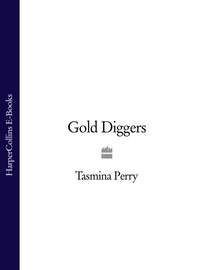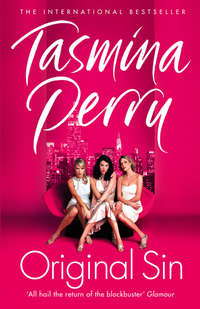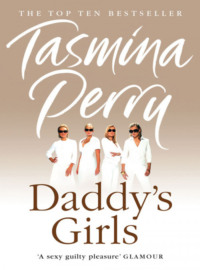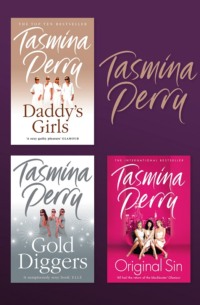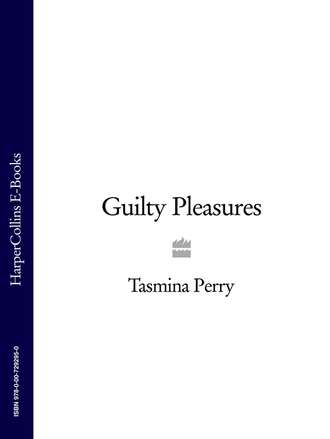
Полная версия
Guilty Pleasures
He looked as if he was about to keep denying it but finally he simply shrugged his shoulders.
‘OK. You’re right. I happen to think you’re not ready to be a partner,’ said Mark flatly. ‘You are a good business strategist, but you’re too soft. You don’t even have the balls to fire that dim secretary of yours. You’re an academic, not a corporate player. You’re too nice to make tough decisions. You’re just not ready to play with the big boys.’
‘And Pete Wise is ready? Jack Johnson is ready? Does being on your softball team make you ready for partnership? I’m good, Mark,’ she pleaded. ‘You know it.’
‘You do well at Harvard and you think the world owes you a favour,’ he laughed scornfully.
‘I trusted you to tell the truth,’ she said quietly. ‘I trusted you to tell people like Daniel Davies that I was the best. But no, you surround yourself with yes-men, idiots who will make you look good.’
‘Fucking you could have cost me my job and this is all the thanks I get,’ he said sneeringly Droplets of rains began to fall. They were like slaps on the cheek.
‘Fucking me,’ she repeated quietly. ‘Is that what it was to you?’
Mark glared at her, then waved a dismissive hand in the air.
‘Ah, you needy women are all the fucking same: Davies is right, you probably do want to run off and have a baby.’
She looked at him. The man she had whispered ‘I love you’ to, the man she had admired and trusted, had withered to a sycophant and a liar, a man who lived off other people’s hard work and talent. She knew she was better than him, but there was little doubt he had played the game better than her. The likes of Daniel Davies would never know how much she put into the company, how much profit was directly down to her efforts and talent because operators like Mark Eisner took the glory for himself.
Waves were beginning to whip up in the harbour and rain was beginning to fall more heavily. Lights on the skyscrapers behind her sent a muddled saffron glow into the shallow puddles. She was angry, confused, but she was sure about one thing.
‘I don’t ever want to see you again,’ she said as evenly as she could.
‘Emma, don’t be ridiculous,’ he said, the tone of his voice softening. ‘We have to work together.’
‘Do we?’
She thought of Winterfold, that crazy jumble of antiques and bric-a-brac, she thought of the lazy village and its single red telephone box, all of it a million miles away from this corporate jungle. Saul had trusted her to take over his entire company. Saul had faith in her. And suddenly so did Emma.
Suddenly she had a clear sense of purpose, a sense of belonging.
‘Happy birthday, Em,’ said Mark, hunching his back against the rain.
She didn’t turn round. She just kept on walking.
5
Briarton Court, one of England’s top boarding schools for girls, had phenomenal resources at its disposal. Its one hundred acres of grounds housed an embarrassment of riches: indoor and outdoor swimming pools, a lacrosse pitch, running track and tennis and petanque courts. In the classroom, Briarton’s pupils – who included the children of politicians, tycoons, ambassadors, billionaires, minor European royalty and good old-fashioned English aristocrats – had the opportunity to study everything from Calculus to Mandarin, not to mention the wide range of extracurricula activities. Apart from the annual ski trip to Klosters, the most popular after-school activity by far was Briarton’s monthly careers evenings which pulled in guest speakers to give the Oxford Union a run for their money.
That evening’s guest speaker looked around the packed lecture theatre and took a sip of water. Cassandra Grand had been tempted to turn down the invitation to speak as it was slap bang in the middle of London Fashion Week, but when she had heard that in the last two years alone the speakers had included two cabinet ministers, a Nobel prize winner, Richard Branson and an Oscar-winning actress, Cassandra had found time in her diary.
She was glad she had; forty-five glorious, uninterrupted minutes talking about her glamorous life as a glossy magazine editor and – the girls hung on every word of this – how she had got there. Cassandra would reveal how she had left a similar school to this one eighteen years ago with the sole ambition of wanting to work for an upmarket fashion magazine. How her six months as an intern at US Rive almost killed her: lugging suitcases full of clothes to fashion shoots, unpacking them and ironing them, getting shouted at by the photographer, the art director and the models, running here and there to fetch coffee, batteries or pick up dry-cleaning, then repacking the suitcases, lugging them back to the office late at night before neatly folding the clothes back into padded envelopes for return to the fashion houses. She would tell them how she got her big break when she met Carla Miller, one of the hottest fashion names of the early Nineties, back in London. Carla styled shoots, catwalk shows and advertising campaigns for the likes of Calvin Klein and Versace and it was she who gave Cassandra a job as her assistant. She would tell them how Carla grew so confident in Cassandra’s abilities that she would recommend Cassandra for small jobs that she was too busy, or simply too important to undertake. And she would describe how another chance meeting with Alliance Chairman Isaac Grey landed her a job as fashion editor on US Rive where she rose through the ranks to become their deputy editor and eventually seconded to salvage the UK edition as their editor-in-chief. Cassandra had loved talking about herself and reliving her apparently charmed life, leaving out the ruthlessness, the back-stabbing and political chicanery that was really at the heart of her success.
She was, however, unprepared for the onslaught of questions from her eager audience, hands darting into the air like fireflies.
‘How much money do you earn?’ asked a blonde in the front row.
‘What famous people have you met?’ asked a Chinese girl further back.
‘Do you get free clothes?’
‘Do you have to be thin?’
Cassandra looked out onto the sea of eager faces wondering how many of them would make it. The fashion cupboards of glossy magazines, of course, were full of pretty young things like these who wanted to play with clothes all day long, killing time until a rich banker husband came to sweep them off their feet and out to the country.
‘What do you need to get to the very top, other than a fabulous fashion eye?’ asked a beautiful blonde girl. Now she looked more promising. Her blouse looked vintage YSL and she had that indefinable X factor. Stylish, confident, focussed. Cassandra smiled at her.
‘Having a fashion eye certainly helps, but it’s not essential. People who reach the very top know how to pick the best team, how to get the most out of other people’s talent. What the editor-in-chief needs is passion, determination and a way of thinking commercially. Knowing what the reader wants. Knowing how to woo advertisers like lovers …’ She paused, realizing she had overstepped the mark, but she gave the blonde a helpful, conspiratorial smile. ‘If you want to make it to the top, my dear,’ she said, perfectly seriously, ‘you need to know how to make money.’
At that point, Miss Lamarr, head of the Sixth Form rose to her feet. ‘I think that’s enough questions now,’ she said briskly. ‘Miss Grand is a very busy woman. I’m sure she has plenty of fashion shows to attend,’ she added light-heartedly.
A burst of eager applause bounced around the wood-panelled room. As Cassandra descended from the stage, she was surrounded by girls wanting to shake her hand or get an autograph. A flustered Miss Lamarr motioned to Cassandra who escaped through a side-door into a quiet corridor, shutting the pandemonium behind her. She took a deep breath, energy buzzing around her body. She felt like a movie star.
‘Hiiiiiii,’ squealed a loud voice to Cassandra’s left. Before she could even turn, a lanky female body wrapped itself around her, almost toppling her over.
‘Can you believe they wouldn’t let me watch the lecture?’ gushed the voice, not releasing the embrace. ‘No year nines allowed, apparently. Rules are rules even if it’s your mother speaking they said!’
‘Darling, how are you?’ said Cassandra, disentangling herself, before kissing the girl warmly on the cheek. Cassandra hadn’t seen her daughter Ruby since Christmas and couldn’t believe how much she had changed in only eight weeks. She had always been tall and gangly, but Cassandra was convinced she must have grown another inch since New Year. Already she was five feet eight and even the drab Briarton school uniform could not disguise her blossoming figure. A size six, thought Cassandra, trying not to feel envious: the perfect sample size. If there was one thing Ruby’s father had given her, it was good genes, with olive skin, raven hair spilling down her back and eyes that could change from grape green to emerald depending on the light and time of day. She would have looked like Pocahontas were it not for a long vivid orange streak across Ruby’s fringe.
‘What on earth is that?’ she exclaimed in horror.
‘I know,’ said Ruby, shrugging her shoulders. ‘It didn’t quite work out as I imagined. Sienna said I’d look good with some contrast in my hair. Now I look like a sun-tanned skunk.’
‘What were you thinking? What the hell did you use?’
‘Bleach.’
‘Don’t you know some of the best hairdressers are at my disposal? Do you never listen …?’ she exhaled dramatically. ‘Maybe Daniel Galvin will do a house call,’ she said thoughtfully, still angry that this was yet another problem she had to sort out.
Cassandra had been 21 years old and on a photo-shoot in Miami when she had met Narcisso, a half America/half Cuban male model. She had been too young to say no to sex with someone incredibly good looking – and hell, why not? So they’d had a one-night stand. It was the most fantastic sex of Cassandra’s life. It was not until five months later that she found out she was pregnant. As a rule, Cassandra ate very little to keep her rail-thin figure, which had sent her menstrual cycle haywire to say the least. Cassandra had thought it was the end of the world: it was too late to abort it, too far gone to hide it and she had no intention of contacting the father again. The thought of adoption had crossed her mind for a moment but – against all previous instincts – Cassandra found she had a maternal side. The baby was her. A part of her, a product of her. How could she give that up? She quickly came to regret such romantic thoughts. Holding Ruby in her arms was the first time she could ever remember feeling helpless and she hated the feeling. Added to which, almost immediately, having a baby interfered with her career. She couldn’t travel, couldn’t work late, couldn’t attend all the parties so essential to maintaining a profile in the fashion world. Cassandra had no choice: she moved her daughter in with her mother and went back to work. At eight, Ruby was sent to boarding school. Ruby had her own room at Cassandra’s Knightsbridge apartment, although it was rarely used. Cassandra had fought hard to hold onto her career, but now she was glad she had Ruby. Unlike thousands of career women her age she didn’t have to worry about the ticking biological clock or finding the right man because she had a child, one that was becoming more self-sufficient by the day. They climbed into the back seat of the Mercedes and Cassandra ordered the driver to take them into Rye.
‘Here. Some of the older girls asked me to give you these.’ Ruby thrust her hand into her Marni tote bag and pulled out a handful of CVs. ‘You’ve made me very popular with the upper sixth.’
They drove out of the school gates and made the twenty-minute journey into Rye. Andrew dropped them outside the Mermaid Inn, the best restaurant in Rye. It had a slightly run-down rickety feel, with uneven floors and low beams, the sort of place you could imagine well-heeled smugglers frequenting. Sitting by the window, Cassandra could see up towards the medieval church and the half-timbered houses. There was an undeniably eerie beauty to the town. Not quite Nobu, thought Cassandra, but charming nonetheless.
‘Isn’t it great?’ said Ruby, bouncing in her window seat, ‘Johnny Depp stayed here once.’
‘Did he?’ said Cassandra, slightly mollified. ‘I’m not at all surprised.’
‘So how was the funeral?’ asked Ruby, her young mind already on other things. ‘I still don’t understand why I couldn’t have gone. I saw Uncle Saul more than you did and I really wanted to go and say my goodbyes.’
‘Roger thought it best if there were no children and for once I agreed with him.’
‘Mother, I’m not a child,’ said Ruby, affronted. ‘I’m thirteen years of age.’
‘By the way,’ said Cassandra crisply, ‘Saul left you £10,000 in his will.’
‘Wow! Brilliant!’ squealed Ruby slurping her drink. ‘Can I have it now?’
‘Of course not,’ said Cassandra fiercely.
‘And did you get the company?’ she replied playfully.
Cassandra almost smiled at her daughter. Straight to the point, just like her mother.
‘No. Saul, in his infinite wisdom, gave it to my cousin Emma.’
‘Ah, so that’s why you’re in a really shitty mood,’ she smiled cheekily.
‘Ruby!’ said Cassandra. ‘I don’t pay £25,000 a year for your education to hear you swear.’
Ruby leant forward and held her mother’s hand.
‘What did you want that boring company for anyway?’
‘I wanted it for us, darling,’ said Cassandra, squeezing her daughter’s fingers with a warmth that surprised her.
‘But why?’ asked Ruby. ‘You have a cool job. We have money. If you’d got the company, we’d have had to move back to the village. Uncle Saul used to tell me that it was a perk of owning the company living in that house. Some perk! It’s so creepy! I bet it’s got ghosts.’
Cassandra moved her hand from her daughter’s grip, smarting at her daughter’s casual dismissal of her ambitions. What did that ungrateful wretch think she did this all for? How did she think she got such an expensive education? A few ghosts was the least of it. Cassandra took a deep breath, trying to get her emotions under control. Only Ruby could make her shake like this, she thought.
‘So … what did you think of the March issue?’ she asked, trying to change the subject.
‘It was great. Although I think you do too much modern art.’
‘Darling, lots of our readers are collectors or fancy themselves as collectors.’
‘But it’s all a bit rubbish, isn’t it?’ laughed Ruby. ‘I mean the way you called that painter who does the orange circles a genius. How is he a genius compared to say Leonardo da Vinci? Did you know Da Vinci was probably one of the most all-round talented people ever? He designed helicopters, solar heating, rockets, everything.’
Cassandra smiled.
‘Am I to assume you’re studying the Renaissance period at the moment?’
‘You got it,’ grinned Ruby, happy her mother had taken the bait. ‘… And seeing as I got an A in my paper, are you going to take me to Paris? You did promise at Christmas … ?’
The fact that Cassandra was the mother of a 13-year-old girl was an open secret in the industry, but it was not something she flaunted. There was no shame; over the years, Anna Wintour’s child Bee Shaffer and French Vogue editor Carine Roitfeld’s daughter Julie had been seen on the front row. But Ruby looked nearer eighteen than thirteen; Cassandra was only 35, and did not want people doing the maths and getting it wrong.
‘Now, darling, I know I promised you could come to a couple of shows this year but Rive is throwing a big party in Paris and I don’t think it would be appropriate for you to be there. Maybe for couture in July, mmm?’
‘I really wanted to go to the Louvre,’ said Ruby in a low, disappointed voice.
Cassandra so wanted to please her daughter, to give in to her demands. She’d love to show Ruby off, but she had to be strong. She couldn’t let Ruby’s disappointment interfere with her plans, not now. She was doing it for both of them – didn’t she understand that? Sometimes she felt so close to her daughter that she was almost part of her, other times it seemed as if they lived on different planets.
‘When am I going to see you again?’ said Ruby grumpily.
‘I’m away for a little while. Milan, Paris and then I have to go to Mexico. But I think your grandmother is coming next weekend.’
Ruby looked up at Cassandra; her teenage barriers were all stripped away now and she was just a little girl who needed her mum.
‘I miss you,’ she said.
‘I miss you too,’ said Cassandra, her voice wobbling. ‘But you know why I work so hard, don’t you?’
‘For us?’
Cassandra nodded, then reached under the table for a stiff paper bag.
‘Here,’ she said, ‘I’ve been saving this.’
Ruby peeked inside, rifled through the tissue paper and then looked up beaming.
‘Groovy. A Chanel quilt!’ she said.
‘The Chanel 2.55,’ corrected Cassandra. ‘So named because …’
‘… because it was introduced by Coco Chanel in February 1955, I remember,’ said Ruby quietly.
Cassandra felt a pang of disappointment and concern at Ruby’s interest in the works of Leonardo da Vinci above those of Coco Chanel. While her daughter’s quick-wittedness and spirit suited Cassandra’s image of herself, to be too academic might be detrimental to Ruby’s long-term prospects. Intelligence put too many men off, which was why brainy bluestockings like Emma Bailey ended up alone.
Cassandra had such high hopes for her beautiful daughter. She wanted her to be the belle of the Crillon ball. She wanted her to have a good marriage; a spectacular marriage, perhaps the son of an oligarch or the scion of some great American family. She wanted her to have glamour and power and money. She wanted her to have everything.
The car stopped back outside Briarton Court and they got out.
‘Are you coming in to say goodbye?’ asked Ruby. ‘I have to be back in the dorm by nine.’
‘I won’t come to the dorm. I might get accosted for more autographs,’ said Cassandra following her into the entrance hall.
‘Don’t pretend you don’t love it,’ smiled Ruby, twisting the chain strap of her bag around her fingertips. Cassandra kissed her daughter on the cheek and felt a shot of warmth course through her body. As Ruby ran down the corridor, her mother watched her go, only turning round when she heard the tapping of shoes coming down the stone floor towards her.
‘Miss Broughton,’ smiled Cassandra extending a hand to the matronly headmistress of Briarton.
‘A wonderful talk, Miss Grand,’ she said, although Cassandra detected a look of disapproval in the woman’s expression. ‘I have a love-hate relationship with the career talks. On the one hand, it’s wonderful to be able to make use of the resources our parents offer us, but it does make the girls rather giddy.’
‘Well, I have a handful of CVs to show for it,’ said Cassandra, tapping her bag. ‘It’s the sort of initiative I like to see,’ she lied.
Miss Broughton smiled. ‘I’ll walk you to your car.’
They stood in the doorway. Outside it was cold; frost was sitting on the ground and creeping fog was settling in the darkness in front of them.
‘We didn’t see you at parents’ evening last month,’ said Miss Broughton, a little too casually.
‘I was in Paris, I’m afraid,’ said Cassandra, refusing to rise to the bait. ‘I believe my mother attended.’
‘When we work so hard we have to work twice as hard not to be a stranger to our children.’
Cassandra bristled. The cheek of the woman!
‘Until last month, Miss Broughton, I have never missed a parents’ evening since my daughter started her education. But her last school didn’t have parents’ days during couture.’
There was the crunch of car tyres as Andrew her driver drove the Mercedes in front of them.
‘I must go,’ said Cassandra quickly tightening the belt of her cashmere overcoat.
Miss Broughton nodded, but continued to talk. ‘You are aware that Ruby is one of the most able pupils in her year? Independent, although you would expect that from someone who has boarded for so long. Very bright too. But there is a definite rebellious streak there we must keep our eye on.’
Cassandra gave a small laugh. ‘If we are referring to the orange stripe in her hair I’m going to get that sorted out immediately.’
The headmistress shook her head. ‘I’ve always felt thirteen is a watershed age. The cusp of womanhood. She needs her mother to guide her along the right path.’
Cassandra felt herself stiffen. Was there the suggestion in the woman’s words that she was not a good mother, or was she being overly sensitive?
‘I thought that’s what I paid you a great deal of money to do,’ said Cassandra, pursing her lips.
‘We like to think we have excellent pastoral care at Briarton but we can’t be all things to all children.’
You hypocrite thought Cassandra narrowing her eyes. You charge the highest fees to make parents feel better about themselves but at the slightest hint of trouble, you throw the blame straight back at them.
‘Ruby has an enormous amount of love and attention from her family, Miss Broughton, I can assure you of that. I can also assure you that there are other schools who would be only too glad to take responsibility for a bright, capable pupil like Ruby.’
She opened the car door and climbed inside.
‘As I said, a wonderful talk, Miss Grand,’ Miss Broughton said as Cassandra slammed the door.
Through the tinted windows, she looked up at the Gothic beauty of Briarton Court and shivered. For a moment she thought about taking her daughter away. That would show the old bitch, thought Cassandra. She wouldn’t want to lose the high grade exam results Ruby was likely to chalk up, would she? But then the reputation of the school was unparalleled and more importantly, the calibre of the pupils, of the friends that her daughter would forge, was also excellent. Besides, she didn’t want the inconvenience of moving Ruby again. She looked away from the school and told Andrew to drive to London as fast as he could. She then turned her attention to dissecting the new issue of Vogue as it started to rain.
6
Emma told the taxi to go slowly. Past Prada, Gucci and Yves Saint Laurent. Past Hermès, Celine and Louis Vuitton. Past the window displays of grand twinkling diamonds: De Beers, Tiffany and Cartier. Past some of the greatest, most desirable luxury brands in the world. London seemed to have grown so much richer since the last time she had been shopping in Mayfair. Bentleys and high-end Audis lined the road, beautiful women with expensive haircuts and winter tans floated out of jewellers with big smiles and sparklers.
‘So where d’you want dropping, love?’ asked the cabbie, now visibly annoyed. He’d spent the last ten minutes snaking up and down Bond Street, with Emma pressing her face up against the window.
‘Do you know the Milford shop?’ she asked.
‘Not the foggiest, love. What’s it look like?’
Emma knew how he felt. It had been so long since she had last visited the Milford store that she could scarcely remember it either, and now having gone up and down the length of Bond Street, she was no wiser. Milford had four stores worldwide, all in prime locations; Rue St Honoré in Paris, Fifth Avenue in New York and Via Condotti in Rome, but the London shop was the flagship. Strange, then, that it seemed impossible to locate.
‘There it is,’ she said finally, and the taxi pulled up outside an anonymous-looking store on the lower stretch of New Bond Street.
‘It’s my shop. Well, sort of,’ she explained to the cabbie as she handed him a crisp twenty pound note.
‘Yeah, right,’ said the taxi driver under his breath as he roared off. Emma loitered on the pavement, unsure whether she really wanted to go in. It was a rather forbidding place, painted in a dark blue with a tiny window display of some not terribly exciting wallets and gloves. Taking a deep breath, she pushed the mahogany door but it wouldn’t open. She tried again, this time harder, but still it wouldn’t budge. Then she noticed a bell to the side of the door and after pressing it twice, a buzzer sounded and it opened with a creak. The ghostly quiet which greeted her reminded Emma of going into a church. The store was dingy and very old-fashioned and it smelt slightly musty, like a country house boot-room. Where’s the glorious smell of leather? she thought distractedly. There was a beautiful staircase in the middle of the room leading to a mezzanine floor, but the rest of the store was dark and depressing, with small windows which let in very little light. Behind the counter, an old man with a pince-nez eyed her curiously, then continued with his telephone conversation. Emma had the curious sensation of feeling both intimidated and ignored at the same time.


